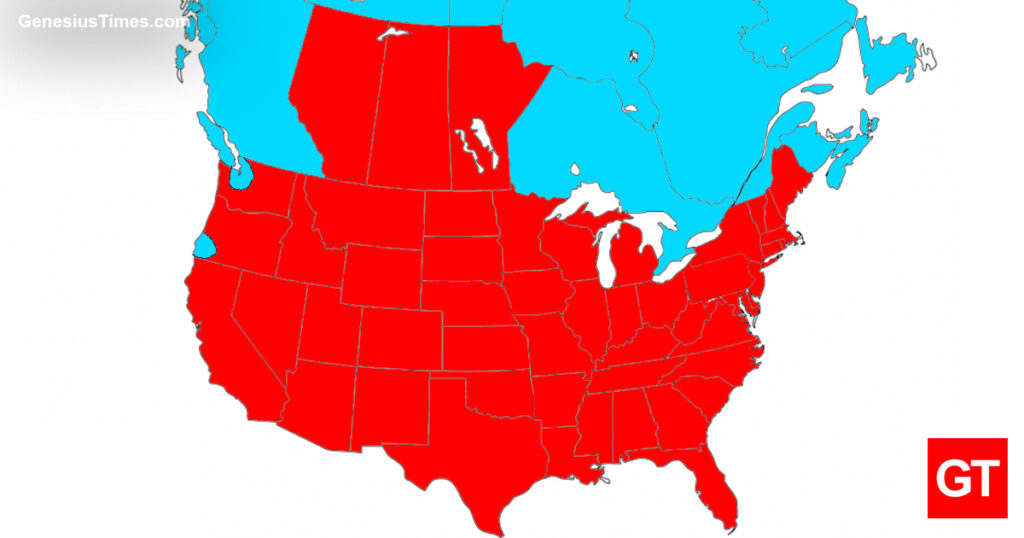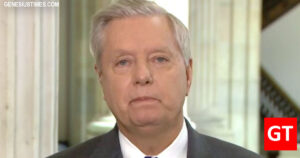BREAKING: Trump Ends US-Canada Trade War with Bold Swap: Seattle and Portland for Alberta, Saskatchewan, and Manitoba

Washington, D.C./Ottawa, April 29, 2025 – In a move that has left economists dumbfounded, patriots clutching their Tim Hortons cups, and hipsters frantically searching “Saskatchewan” on their solar-powered phones, former President Donald Trump has ended the US-Canada trade war by trading Seattle and Portland for Alberta, Saskatchewan, and Manitoba. The deal, struck with Canada’s newly-elected Prime Minister Mark Carney, was announced yesterday at a Mar-a-Lago press conference that doubled as a MAGA rally, rewriting the North American map in what Trump called “the greatest deal since I invented winning.”
“I told Mark—smart guy, very British, loves my ties—I said, ‘Mark, let’s end this trade war mess. You take two cities that are basically Canadian already, and I’ll take your three most American provinces!’” Trump declared, gesturing to a crowd waving “Alberta for America” signs. “Seattle and Portland? They’ve got tech nerds, kombucha, and socialism—perfect for Canada. We get oil, wheat, and tough folks. Tremendous!”
The swap, finalized over a late-night negotiation involving Diet Coke, maple-glazed donuts, and Carney’s infamous economic charts, hands Alberta, Saskatchewan, and Manitoba—Canada’s conservative, resource-heavy heartland—to the United States. In return, Canada gains Seattle and Portland, progressive Pacific Northwest hubs known for tech giants, eco-activism, and overpriced avocado toast. The deal aims to resolve years of trade disputes over dairy, softwood lumber, and Trump’s bizarre grudge about Canada “stealing our snow.”
The Swap Breakdown
- What the U.S. Gets: Alberta, Saskatchewan, and Manitoba
Alberta, often called “Canada’s Texas,” brings oil sands, rodeos, and a rugged independent streak to the U.S. Saskatchewan offers vast wheat fields and a population that laughs at Midwest winters. Manitoba, with trade ties to the U.S. Midwest, adds Winnipeg—a city Trump dubbed “America’s new hockey capital, believe me.” Together, these provinces are a conservative stronghold, with X users joking they’ll form a “MAGA North” voting bloc. “We’re trading craft beer for crude oil—genius!” Trump boasted. - What Canada Gets: Seattle and Portland
Seattle, home to Amazon, Microsoft, and Starbucks, now flies the maple leaf, alongside Portland, known for its eco-warriors, craft breweries, and “Keep Portland Weird” vibe. Prime Minister Mark Carney, fresh off his election win and still clutching his Bank of England playbook, hailed the deal as “a bold step toward a greener, more inclusive North America—with better coffee.” Seattle’s tech moguls and Portland’s vegan cyclists, already Canadian in spirit, are reportedly ecstatic—though some are Googling “what’s a loonie?”
Carney’s Role: Economic Wizard or Reluctant Dealer?
Mark Carney, the former Bank of Canada and Bank of England governor turned Prime Minister, brought his trademark technocratic flair to the negotiations. Known for his climate-focused policies and economic savvy, Carney initially pushed back on Trump’s proposal, citing “geopolitical stability” and “basic logic.” But after Trump threatened to tariff Canada’s entire maple syrup supply—“I’ll make pancakes great again, without you!”—Carney relented, seeing an opportunity to offload Canada’s conservative provinces while gaining progressive, tech-rich cities.
“This deal aligns with our vision for a sustainable, innovative Canada,” Carney said at an Ottawa press conference, adjusting his glasses while flanked by solar panels. “Seattle and Portland share our values—climate action, diversity, and universal healthcare. Alberta… well, they’ll be happier with Trump.” Insiders say Carney also saw the swap as a way to bolster Canada’s tech sector, with Seattle’s Silicon Forest potentially outshining Toronto’s startup scene.
Reactions: Outrage, Elation, and Utter Bewilderment
The deal has sparked chaos across the continent. In Alberta, oil workers are cracking open Molson Canadians (now imported) to celebrate joining a country that “gets” fossil fuels. “No more carbon taxes—Trump’s our guy!” cheered Edmonton driller Jake Thompson, sporting a stars-and-stripes cowboy hat. Saskatchewan farmers are cautiously optimistic, hoping U.S. markets will boost grain prices, though some are mourning the loss of Hockey Night in Canada broadcasts.
Manitoba’s response is a mixed bag. Winnipeg Mayor Lisa Chen called the swap “a betrayal of Canadian identity,” lamenting, “We’re trading beaver tails for bald eagles—what’s next, Fahrenheit?!” But rural Manitobans, long aligned with U.S. Midwest values, are ready to embrace the change. “I’ve been ice fishing with my buddies in Minnesota forever—now we’re just official,” said a farmer from Steinbach.
In Seattle and Portland, the mood is jubilant. Tech workers in Seattle are designing apps to “gamify universal healthcare enrollment,” while Portland’s mayor declared a “Maple Leaf Block Party” to welcome Canadian culture. “We’ve been Canadian at heart for years—free doctor visits, legal weed, and saying ‘sorry’ all the time? We’re in!” tweeted a Portland barista. However, some tech CEOs are sweating over new tax structures, with rumors that Elon Musk is relocating Tesla’s HQ to Alberta to “drill for freedom.”
North of the new border, Canadians are reeling. British Columbians are livid about losing their Portland weed runs, while Quebecers are demanding to know if Seattle’s tech bros will learn French. “This is an insult to our heritage!” cried a Montreal protestor, waving a fleur-de-lis flag. Carney, ever the pragmatist, has promised to “integrate the new territories with respect for all cultures,” though he dodged questions about Portland’s poutine authenticity.
![]()




